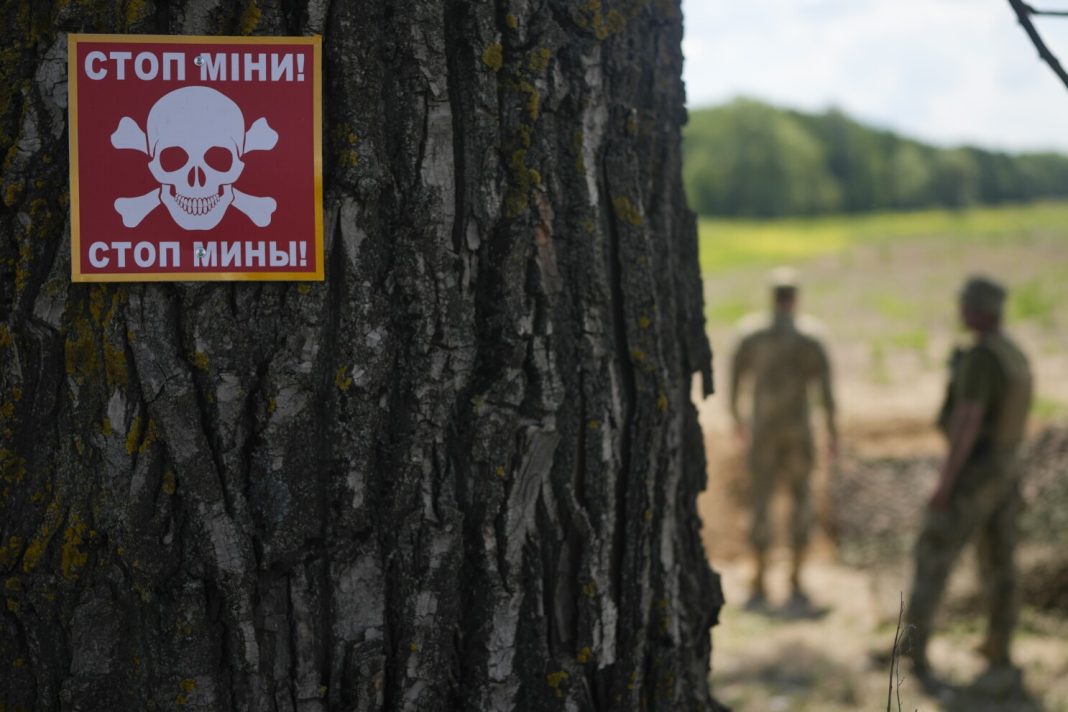Finland and Lithuania are preparing to begin domestic production of anti-personnel landmines starting next year. This move to manufacture mines comes as both countries face increasing military concerns from neighboring Russia. Officials from the two NATO nations confirmed the mine production plan to Reuters, stating that it reflects a broader effort to boost regional security.
NATO Members Prepare for Regional Threats
To start mine production, both countries have announced their intention to withdraw from the Ottawa Convention, a 1997 treaty that bans the use and production of anti-personnel mines. Once their six-month withdrawal process is complete, they can begin manufacturing.
This development is not isolated. Three other NATO and EU countries—Poland, Latvia, and Estonia—have also announced plans to exit the Ottawa Treaty. Though they have not officially started production, Poland and Latvia have indicated readiness to do so if necessary, while Estonia considers it an option for the future.
Ukraine, which is currently in conflict with Russia, has also decided to withdraw from the treaty. It argues that the move will help it defend its territory more effectively. Both Russia and Ukraine have accused each other of using anti-personnel mines during the war. Notably, Russia is not a party to the Ottawa Convention.
Lithuania Says NATO Must Go Public on Gaps to Justify Defense Costs
The shift toward mine production reflects growing alarm in Europe. Countries bordering Russia are taking active steps to strengthen their military defenses. This comes as NATO members have committed to increasing defense budgets, aligning with expectations set by U.S. leaders.
Lithuania’s Mines Strategy and Industry Involvement
Lithuania, which shares a 274-kilometer border with Russia and a 679-kilometer border with Belarus, is investing heavily in landmine production. Deputy Defense Minister Karolis Aleksa told Reuters that Lithuania will spend hundreds of millions of euros not just on anti-tank mines but also on anti-personnel mines.
According to Aleksa, the country plans to order tens of thousands of mines or more. Lithuania’s national defense industry will play a key role in this operation. Aleksa confirmed that local companies are capable of manufacturing these weapons.
🛡️ NATO unity rattled as Spain defies 5% defense pledge, Trump threatens sanctions
Vincas Jurgutis, head of Lithuania’s Defense Industry Association, said that once production is underway, Lithuania will also be in a position to supply mines to Ukraine. This suggests that mine production is seen not only as a defensive measure but also as a way to support allies facing military threats.
Russia’s Defense Ministry has not commented on Lithuania’s announcement, and no formal reaction has been issued so far.
Finland Focuses on Mines for Border Security
Finland shares the longest border with Russia among NATO members, stretching 1,340 kilometers. Officials there say that starting domestic mine production is essential for national security.
Heikki Autto, Chair of the Finnish Parliament’s Defense Committee, explained that having local mine production ensures security of supply. He emphasized that anti-personnel mines are “highly effective and cost-efficient” in protecting national borders.
Autto also mentioned that Finland could potentially supply mines to Ukraine, highlighting Finland’s broader role in regional defense. He noted that Finland had over 1 million anti-personnel mines before it joined the Ottawa Treaty in 2011.
Portugal’s Powerful F-16 Jets Replace Costly Dutch F-35s in NATO Baltic Skies Realignment
Several Finnish companies, including Nammo Lapua, Insta, and Raikka, have shown interest in producing mines. Forcit Explosives, another defense firm, has said it is ready to explore production possibilities with the military. However, all companies declined to comment publicly at this stage.
Finland’s military has yet to release an official statement, and the Finnish government has indicated that the landmines will be stored, not used, in peacetime. The focus, according to Autto, is on deterrence and rapid deployment capability if needed.
In April, Russia’s ambassador to Helsinki warned that quitting the Ottawa Treaty would pose risks only to Finnish citizens, since the mines are meant for use on Finnish territory.

